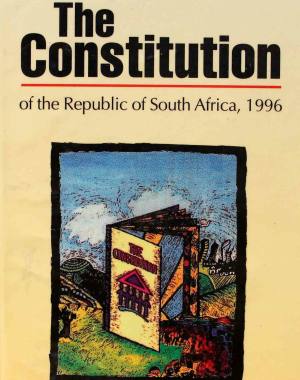Academics told the Joint Constitutional Review Committee (CRC) on Tuesday that it is not necessary to amend section 25 of the Constitution to effect substantial land reform.
It was the first day of the oral submissions on amending section 25 of the Constitution to allow for expropriation of land without compensation, and the general consensus among the academics who presented was that it is the government's inability to carry out land reform that was to blame for the continuing inequality in South Africa's pattern of land ownership, rather than the Constitution.
Professor Ruth Hall of the University of the Western Cape's Institute for Poverty, Land and Agrarian Studies said the CRC had the country asking the wrong question – instead of asking government why it had not implemented section 25, it asked ordinary South Africans if the Constitution should be changed.
"There is no need to change the Constitution in terms of law," she said, adding that there seems to be a political need.
She said it was very clear that section 25 of the Constitution had not been used properly, which was ironic as the ANC fought hard in the 1990s to have a transformative clause included in the Constitution.
Professor Elmien du Plessis from the University of the North West completed her doctorate in law on "Compensation for Expropriation under the Constitution".
'AfriForum in disguise'
"Apart from the state not really using its expropriation powers to acquire land for land reform, our courts also did not have a proper chance to grapple with the question. And yet, here I stand in front of a parliamentary committee to answer one question: should the Constitution be amended in order to establish the future land tenure regime that is needed? Yes, or no?" she said.
She said section 25 need not be amended to allow for land reform, and added that it was not necessary to make changes to the Constitution to achieve just and equitable redistribution of land.
OPINION: Understanding the true cost of changing the Constitution
Du Plessis supports the findings of the high-level panel report, which was chaired by former president Kgalema Motlanthe. The report made damning findings on the government's land reform programme and made recommendations on how to improve it.
She urged Parliament to take these recommendations seriously and implement them. Several other speakers also lauded the panel's work.
After her presentation, EFF MP Thilivhali Mulaudzi described Du Plessis as "AfriForum in disguise".
Zenande Booi of the University of Cape Town's Land and Accountability Research Centre said amending section 25 would not address the failures of land reform, adding that it already allows for expropriation without compensation.
Amendment would require 'overhaul' of Constitution
She said if an amendment to the Constitution was necessary, expropriation without compensation should not be the only mechanism to give effect to land reform. Any amendment and the resultant legislation must adequately address the past failures with land reform and protect the rights of vulnerable communities.
She said the Ingonyama Trust was legally required to administer land in terms of customary Zulu law, yet it acted as if it was the owner of the land.
"Let's take note that there will be liberal presentations from UCT," EFF MP Floyd Shivambu said, reacting to Booi's observation.
Professor Bradley Slade from the University of Stellenbosch's law faculty said amending section 25 would require an overhaul of the whole constitutional design, as other rights contained in the Constitution would also be affected.
Dr Rick de Satgé of the non-profit company Phuhlisani said: "Land remains a potent metaphor for dispossession – a signifier that South Africa does not yet belong to all who live in it."
De Satgé has been involved in the land reform sector since the 1970s.
"We have failed to realise the transformative power of section 25," he said.
"There is no evidence to demonstrate that expropriation without compensation will make land reform cheaper or make it faster."
Black First Land First, Orania to make submissions
Trade union federation Cosatu presented a submission that supported expropriation without compensation.
Cosatu's parliamentary coordinator Matthew Parks presented a list of types of land which should be expropriated without compensation, including abandoned land, neglected land owned by absentee landlords, idle land, land occupied by labour tenants historically and land expropriated during apartheid or the colonial era where market value was not paid to the original owners.
EFF MP Tebogo Mokwele questioned why Cosatu's representative speaking on land was white and presenting a "white minority view".
Parks said the EFF sometimes confused rudeness with political militancy.
He said Cosatu's submission made several suggestions as it did not want to be guilty of "populist sloganeering".
"No, no, no, we are not going to allow that man to say I'm a populist," said Mokwele.
Committee co-chairperson Lewis Nzimande pointed out that Parks was not referring to her.
The committee will sit for oral submissions until Friday. Among the organisations who will deliver submissions on Wednesday are Black First Land First and Orania.
